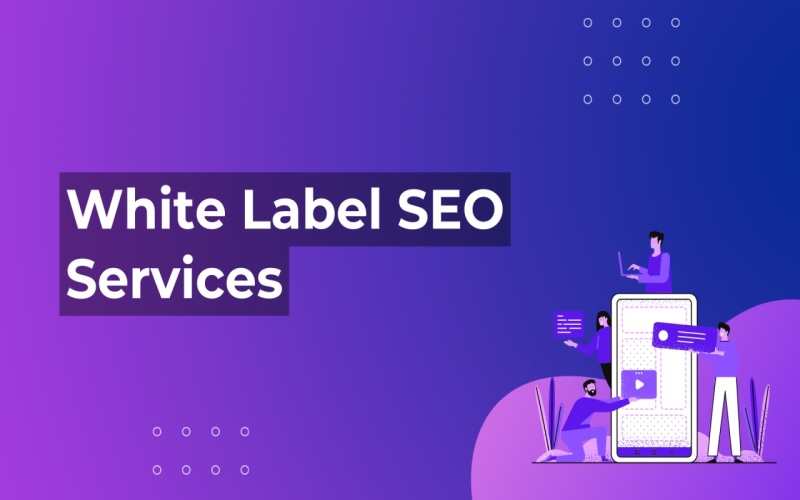Introduction to White Label SEO
In the modern digital marketplace, agencies are constantly pressured to diversify their services and grow their client base. For many, white label SEO offers an ingenious solution. This approach allows agencies to deliver comprehensive SEO services under their brand, leveraging the expertise and resources of specialized SEO providers. White-label SEO is a seamless extension of an agency’s offerings, enabling them to enhance their capabilities without incurring the overhead costs associated with staffing and infrastructure.
By adopting white-label SEO, agencies can focus on what they do best—fostering client relationships and driving business development—while leaving the technical intricacies to seasoned experts. This strategic collaboration elevates the agency’s service quality and positions it favorably in an increasingly crowded market. As demand for robust digital marketing solutions continues to rise, white-label SEO has cemented itself as a critical asset in an agency’s arsenal.
How White Label SEO Benefits Agencies
Using white-label SEO presents agencies with many benefits, fundamentally transforming their operations. One of the most significant advantages is cost savings. Agencies can provide high-quality SEO services without the costs of recruiting and onboarding a committed staff. This model is particularly advantageous for medium—and small-sized agencies that struggle to compete with larger counterparts.
In addition to cost efficiency, white-label SEO provides operational scalability. Agencies can easily adjust their service levels according to client needs and market demand without being constrained by internal resources. This agility enables agencies to pursue larger projects and enter new markets confidently. Furthermore, by outsourcing complex SEO tasks, agencies can allocate more time and resources to developing client relationships and identifying new business opportunities, effectively driving growth and competitiveness in their industry.
Critical Components of a Successful White Label SEO Strategy
Crafting a successful white-label SEO strategy requires meticulous attention to several core components. At its foundation lies effective keyword research, which is critical in ensuring that content resonates with the intended audience’s search queries. This helps align the SEO strategy with the client’s objectives and improve search engine rankings.
Other crucial elements that enhance site visibility and domain authority are on-page and off-page optimization. On-page SEO involves optimizing elements such as meta tags, headers, and content, while off-page SEO focuses on building high-quality backlinks and enhancing brand credibility. Equally important is custom reporting, which empowers clients with insights into SEO performance metrics and ROI. By tailoring these components to align with clients’ specific goals, agencies can foster long-term relationships and reinforce client trust.
White Label SEO Tools and Resources
To excel in delivering white-label SEO services, agencies must leverage various essential tools and resources. These include keyword planners, which assist in identifying profitable keywords, and analytics platforms, which provide data-driven insights into website performance. Other critical tools include content management systems and SEO auditing tools, which help identify technical issues and optimize web pages efficiently.
Agencies must keep up with the latest technological advancements and tools. These tools enhance efficiency and offer clients comprehensive insights into their SEO campaigns’ success, strengthening the agency’s reputation for delivering high-quality, data-backed services.
Common Challenges and How to Overcome Them
Despite its myriad benefits, implementing white-label SEO is challenging. Miscommunication between the agency and the white-label provider can lead to misaligned strategies and unmet client expectations. To mitigate this, agencies should establish clear communication protocols and set well-defined goals. Regular check-ins and feedback loops can foster a collaborative environment conducive to successful partnerships.
Another challenge is the dynamic nature of search engine algorithms. With frequent updates, an agency’s SEO strategy can quickly become outdated, leading to traffic declines. Staying informed about these updates and proactively adjusting strategies to align with them is crucial. Agencies must invest in ongoing education and training to remain proficient in current SEO best practices and trends.
Future Trends in White Label SEO
The landscape of SEO is continually evolving, with new technologies and methodologies set to shape its future. Emerging trends such as artificial intelligence and machine learning are expected to revolutionize how agencies deliver SEO services, offering more personalized and precise strategies. According to recent predictions, these technologies will enable more automated and efficient SEO processes, ultimately enhancing outcome predictability and customization.
Agencies that adopt such technological advancements will gain a significant advantage. They will. They will deliver cutting-edge services that meet clients’ evolving needs and expectations. This forward-thinking approach will position them as leaders in digital marketing, capable of offering value-driven and technologically sophisticated SEO services.
Conclusion: The Growing Importance of White Label SEO
In closing, white-label SEO has emerged as an invaluable strategy for agencies seeking to expand their service offerings and enhance their market position. By leveraging the expertise of white-label providers, agencies can deliver comprehensive SEO services without the associated overheads of traditional models. As the digital ecosystem continues to evolve, the strategic integration of white-label SEO will empower agencies to meet current demands and anticipate and adapt to future market shifts.
Ultimately, by embracing white-label SEO, agencies ensure their capacity to deliver exceptional value to clients, fostering long-term growth and success in the competitive realm of digital marketing.

